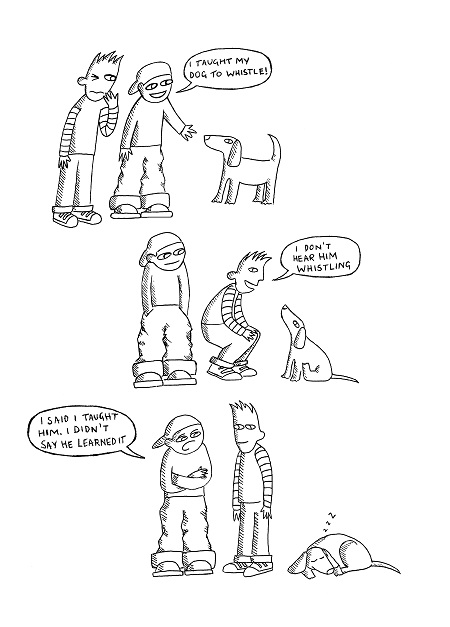At the sharp end: learning opportunities can be found everywhere
Concerned by the tendency towards short-term coaching approaches, Steve Kemp discusses the difference between coaching and teaching, and asks whether a focus on learning might be the best approach.
At the sharp end: learning opportunities can be found everywhere
A critical review of coach education practices would highlight that they are mostly formal, often theoretical and usual based on technical repetition. They are qualification- and content-focused rather than coach-focused. There is an emphasis on a sport’s technical skills and more on declarative knowledge (facts) than procedural (how to do it).
It may be that such an environment has developed to help a coach pass an assessment; after all, while any high-performing coach in any domain will be a committed life-long learner, it is not unreasonable that they may also be conscious of their development and their next post. But such practices have the potential to create a focus on short-term learning.
Across coaching there is a widespread acceptance that coach education has failed to capture the variety of learning situations (Lara Bercial, 2014) and that coach accreditation is less valued than experiential learning and other less formal learning opportunities. (Mallett et al, 2009). If coach education programmes are delivered with a short-term approach, it should be no surprise that the behaviours demonstrated by coaches after coach education courses match some of the outcomes discussed above: technically focused coaches, short-term developments and coach-centred coaching. If you accept that an athlete starting out as a coach will replicate their own experiences it follows that coaching would be slow to adapt to innovation and evidence-based developments.
Of course, it should also be recognised that there are pockets of excellent practice among providers of coach education. Many providers have moved away from short-term processes but an outdated cycle can be perpetuated by those that are resistant to change.
It is fair to say that a number of the statements above would align neatly (and perhaps a little uncomfortably) to the old British Fencing coach education framework so maybe it is time to look at this from another angle.
For example, at British Fencing we make distinctions between teaching and coaching. Simply put, we use the term ‘teaching’ to mean the process of imparting knowledge to or instructing (someone) as to how to do something; and the term ‘coaching’ to mean enhancing and developing basic skills by improving timing, distance and speed of execution. So rather than teaching or coaching, should we consider learning?
What is learning? Some definitions: “…[A] relatively permanent change in behaviour... that occurs as a result of experience” or a “Measurable and relatively permanent change in behaviour through experience, instruction, or study”.
The opportunities and situations to learn are everywhere and there has been some research to define these situations. The description of mediated, unmediated and incidental learning situations (Moon, 1999-2004) is a case in point.
In a mediated situation the fencer is guided by some knowledgeable other. In coaching, these can be seen in formal coaching programmes where the coach controls the learning.
In unmediated learning situations there is no formal coaching: the fencer takes the initiative and is responsible for choosing what to learn. It could be what we might call ‘on-the-job learning’, sessions that could include game-related practices or competition. It could be self-directed, with the fencer watching opponents compete and practice. It could be reflection, where after training or competition the fencer self-questions to identify areas for improvement. It might also involve informal sharing, whether talking to other fencers or the coaches.
In incidental learning situations we find learning that takes place without any intent to learn. It happens in many ways: through observation, social interaction and problem-solving. The coach, parent or team manager may model a good or bad behaviour, which is copied and becomes a permanent change.
For those with a responsibility for fencers there is need to create meaningful opportunities for mediated learning, find ways to foster unmediated learning and encourage ways of incidental learning to promote fencing.
For those with responsibility for coach education the need is the same. This starts with looking to put the coach at the centre of the development process. It also involves looking at the next development the coach needs to become better at what they do and consideration of the context of where they coach. This should then shape the learning situations.
After such a discussion, here are some reflection questions that may help coaches looking to develop their own approach to the coaching process:
Steve Kemp is coaching development manager at British Fencing.
The Leisure Review, September 2017
© Copyright of all material on this site is retained by The Leisure Review or the individual contributors where stated. Contact The Leisure Review for details.
![]() Download a pdf version of this article for printing
Download a pdf version of this article for printing
